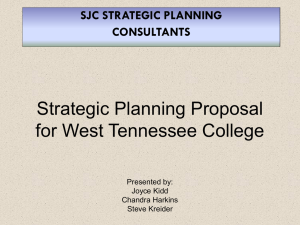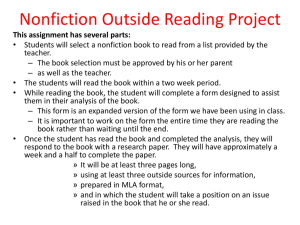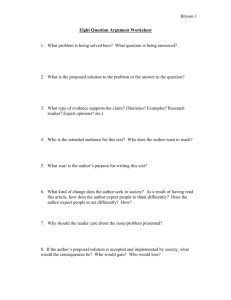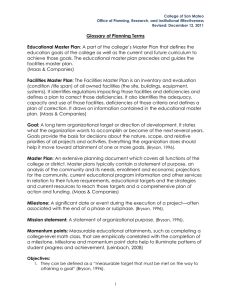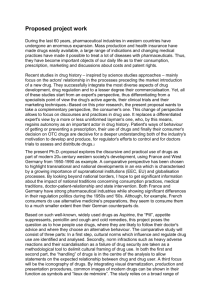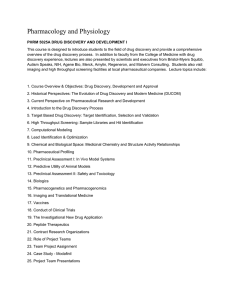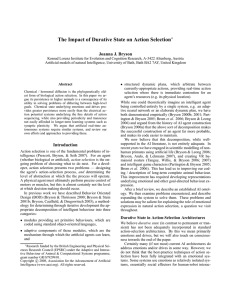E
advertisement
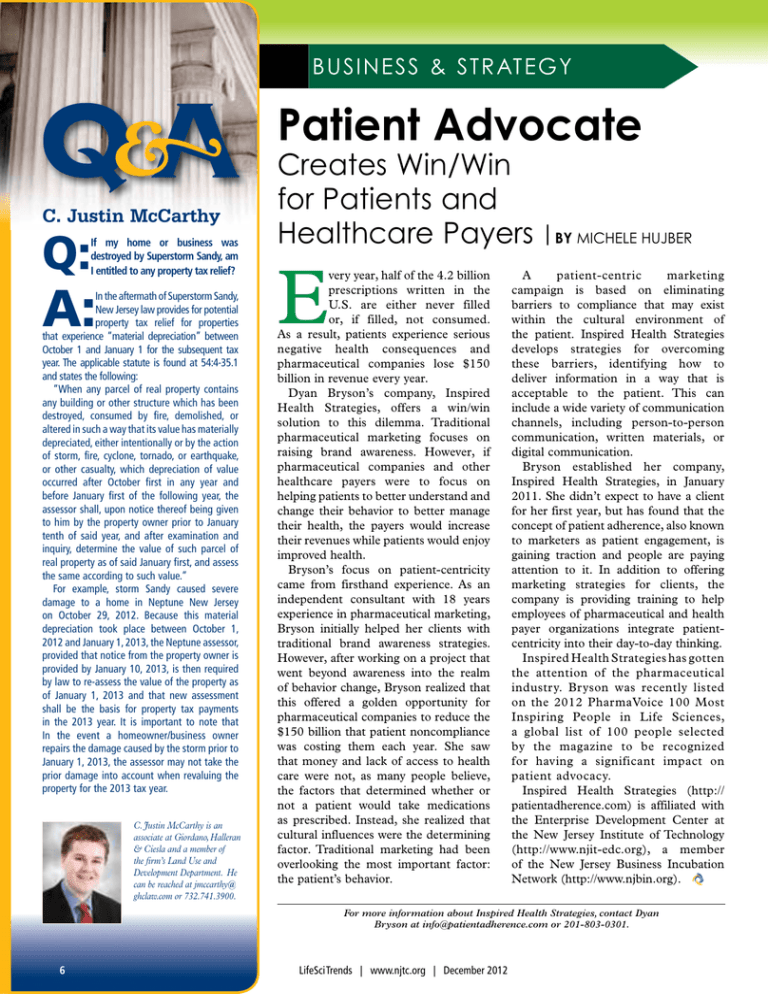
B U S I N E S S & S T R AT E G Y Patient Advocate C. Justin McCarthy Q: If my home or business was destroyed by Superstorm Sandy, am I entitled to any property tax relief? A: In the aftermath of Superstorm Sandy, New Jersey law provides for potential property tax relief for properties that experience “material depreciation” between October 1 and January 1 for the subsequent tax year. The applicable statute is found at 54:4-35.1 and states the following: “When any parcel of real property contains any building or other structure which has been destroyed, consumed by fire, demolished, or altered in such a way that its value has materially depreciated, either intentionally or by the action of storm, fire, cyclone, tornado, or earthquake, or other casualty, which depreciation of value occurred after October first in any year and before January first of the following year, the assessor shall, upon notice thereof being given to him by the property owner prior to January tenth of said year, and after examination and inquiry, determine the value of such parcel of real property as of said January first, and assess the same according to such value.” For example, storm Sandy caused severe damage to a home in Neptune New Jersey on October 29, 2012. Because this material depreciation took place between October 1, 2012 and January 1, 2013, the Neptune assessor, provided that notice from the property owner is provided by January 10, 2013, is then required by law to re-assess the value of the property as of January 1, 2013 and that new assessment shall be the basis for property tax payments in the 2013 year. It is important to note that In the event a homeowner/business owner repairs the damage caused by the storm prior to January 1, 2013, the assessor may not take the prior damage into account when revaluing the property for the 2013 tax year. C. Justin McCarthy is an associate at Giordano, Halleran & Ciesla and a member of the firm’s Land Use and Development Department. He can be reached at jmccarthy@ ghclaw.com or 732.741.3900. Creates Win/Win for Patients and Healthcare Payers |By Michele Hujber E very year, half of the 4.2 billion prescriptions written in the U.S. are either never filled or, if filled, not consumed. As a result, patients experience serious negative health consequences and pharmaceutical companies lose $150 billion in revenue every year. Dyan Bryson’s company, Inspired Health Strategies, offers a win/win solution to this dilemma. Traditional pharmaceutical marketing focuses on raising brand awareness. However, if pharmaceutical companies and other healthcare payers were to focus on helping patients to better understand and change their behavior to better manage their health, the payers would increase their revenues while patients would enjoy improved health. Bryson’s focus on patient-centricity came from firsthand experience. As an independent consultant with 18 years experience in pharmaceutical marketing, Bryson initially helped her clients with traditional brand awareness strategies. However, after working on a project that went beyond awareness into the realm of behavior change, Bryson realized that this offered a golden opportunity for pharmaceutical companies to reduce the $150 billion that patient noncompliance was costing them each year. She saw that money and lack of access to health care were not, as many people believe, the factors that determined whether or not a patient would take medications as prescribed. Instead, she realized that cultural influences were the determining factor. Traditional marketing had been overlooking the most important factor: the patient’s behavior. A patient-centric marketing campaign is based on eliminating barriers to compliance that may exist within the cultural environment of the patient. Inspired Health Strategies develops strategies for overcoming these barriers, identifying how to deliver information in a way that is acceptable to the patient. This can include a wide variety of communication channels, including person-to-person communication, written materials, or digital communication. Bryson established her company, Inspired Health Strategies, in January 2011. She didn’t expect to have a client for her first year, but has found that the concept of patient adherence, also known to marketers as patient engagement, is gaining traction and people are paying attention to it. In addition to offering marketing strategies for clients, the company is providing training to help employees of pharmaceutical and health payer organizations integrate patientcentricity into their day-to-day thinking. Inspired Health Strategies has gotten the attention of the pharmaceutical industry. Bryson was recently listed on the 2012 PharmaVoice 100 Most Inspiring People in Life Sciences, a global list of 100 people selected by the magazine to be recognized for having a significant impact on patient advocacy. Inspired Health Strategies (http:// patientadherence.com) is affiliated with the Enterprise Development Center at the New Jersey Institute of Technology (http://www.njit-edc.org), a member of the New Jersey Business Incubation Network (http://www.njbin.org). For more information about Inspired Health Strategies, contact Dyan Bryson at info@patientadherence.com or 201-803-0301. 6 LifeSci Trends | www.njtc.org | December 2012
